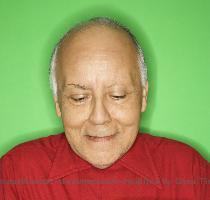British doctors say there could be twice as many cases of Huntington’s disease as once thought
By Maria Cheng, APTuesday, June 29, 2010
UK may have many more cases of Huntington’s
LONDON — British officials say there may be twice as many cases of Huntington’s disease in Britain than previously thought.
To investigate how often the rare and inherited degenerative disease actually occurs, a government group is starting a new study of Huntington’s that will comb health databases for patients and track down how many people are being treated by hospitals and charities.
The initiative was announced Wednesday and published online alongside other articles on the disease in the medical journal, Lancet.
“The fact is it’s not that rare a disease,” said Sir Michael Rawlins, an honorary professor at the London School of Hygiene and Tropical Medicine, who wrote a commentary on Huntington’s in the Lancet. “The question of how many people have Huntington’s has perplexed people for years, but it is far higher than we think.”
Rawlins said more money should be invested into finding new treatments, which could also work for diseases like Parkinson’s and Alzheimer’s.
Huntington’s affects the central nervous system and causes symptoms including stumbling and memory lapses, and usually progresses to dementia, difficulties in talking or swallowing and involuntary movements. There is no cure and most patients die about 15 to 20 years after developing symptoms.
One advantage of knowing how many cases there are in Britain is that it could allow doctors to treat people earlier, without severe symptoms, in the hope of buying them a few more good years. If there are more cases, drug companies also may be more inclined to invest in treatment.
In the past, British officials thought about 7 people per 100,000 were afflicted with the disease. But those numbers were based on studies done in Britain decades ago, before a genetic test was available to identify the disease.
More recent numbers from the Huntington’s Disease Association, a charity that provides help for patients and their families in the U.K., suggests the real figure is far higher. The charity treats 6,702 people with symptoms, meaning at least 12.4 people per 100,000 in Britain are affected.
Experts suspect there are at least double the number of people with Huntington’s disease who don’t have symptoms but can pass it on. All children of a parent with Huntington’s have a 50 percent chance of developing it themselves.
While there are no accurate figures on its prevalence in the U.S., experts said it is likely vastly underestimated. There is also much stigma surrounding the disease and many families have hidden diagnoses, fearing discrimination and difficulties getting health insurance.
“The U.S. has a much more brutal history of eugenics when it comes to Huntington’s,” said Alice Wexler, a historian at the University of California, Los Angeles. She said until the 1960s, people with Huntington’s disease who were institutionalized were routinely sterilized.
With tests now available to identify who will develop the disease, experts hope greater awareness and better surveillance will spur the development of new drugs.
Still, not everyone wants to know their fate.
Wexler’s mother died of Huntington’s disease, and she herself has so far declined to be tested. “Maybe I would feel differently if I had children,” she said. “But right now, living with uncertainty is acceptable.”



